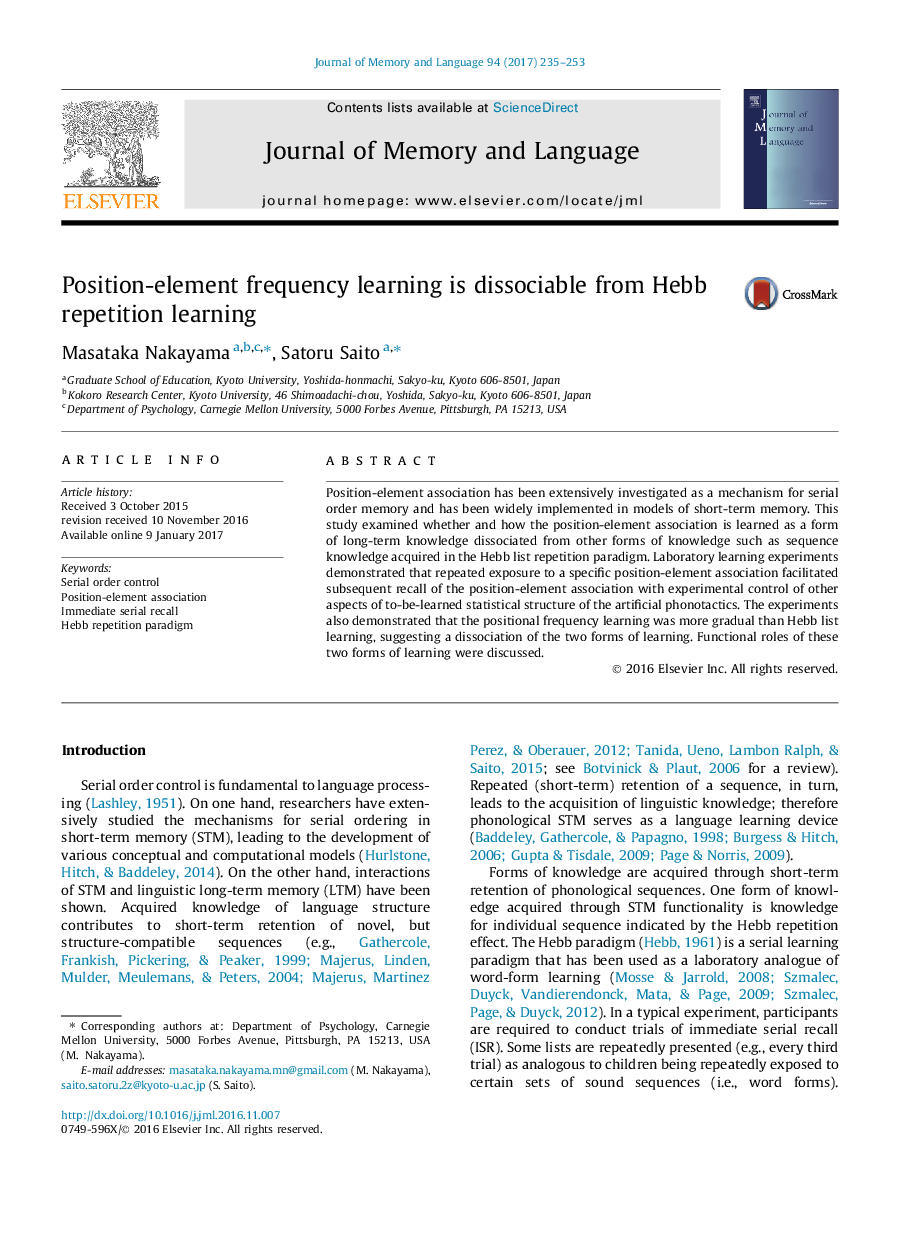| Article ID | Journal | Published Year | Pages | File Type |
|---|---|---|---|---|
| 5042524 | Journal of Memory and Language | 2017 | 19 Pages |
â¢Positional repetition of items contributed to the recall of the items in the position.â¢Position-element association knowledge was learned slower than sequence knowledge.â¢Position-element association knowledge is dissociable from sequence knowledge.
Position-element association has been extensively investigated as a mechanism for serial order memory and has been widely implemented in models of short-term memory. This study examined whether and how the position-element association is learned as a form of long-term knowledge dissociated from other forms of knowledge such as sequence knowledge acquired in the Hebb list repetition paradigm. Laboratory learning experiments demonstrated that repeated exposure to a specific position-element association facilitated subsequent recall of the position-element association with experimental control of other aspects of to-be-learned statistical structure of the artificial phonotactics. The experiments also demonstrated that the positional frequency learning was more gradual than Hebb list learning, suggesting a dissociation of the two forms of learning. Functional roles of these two forms of learning were discussed.
